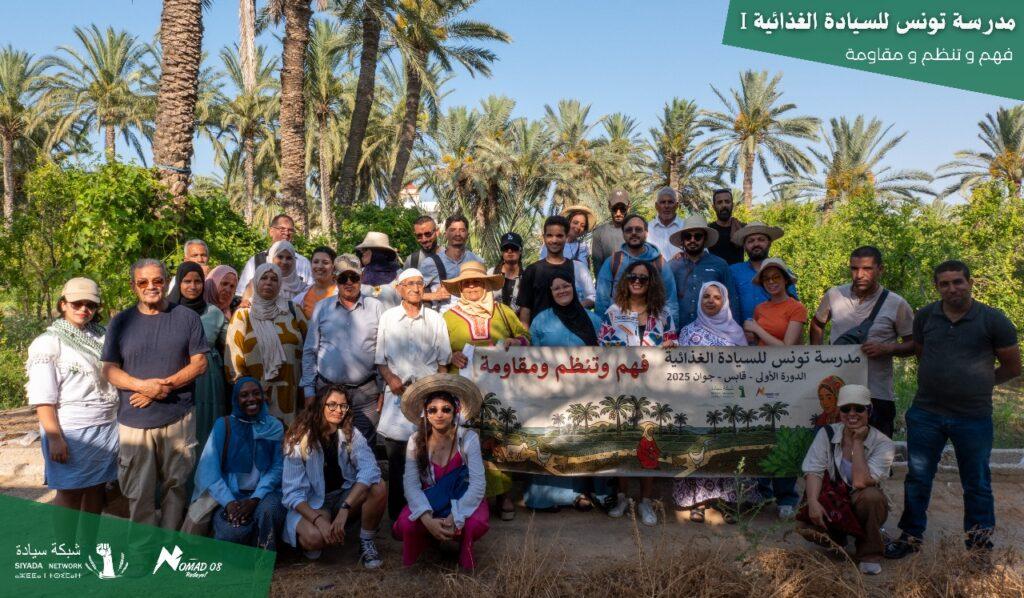From June 17 to 22, 2025 in Gabes, Siyada Network, in collaboration with Nomad 08, organized the first edition of the Tunisian School of Food Sovereignty, which was attended by about 34 people, including small farmers, activists and researchers.
This training course is part of Siyada Network’s work in organizing activities and events to support the struggles and issues of small-scale food producers in the Arab/North African region.
The first course was organized under the following slogan: Understand, Organize and Resist.
The agricultural issue in our region is a key axis for any democratic change in our countries and any real change in the balance of power that governs the destinies of our peoples, and we look forward to contributing to the transfer and development of knowledge with students, researchers, small food producers and other stakeholders and cooperating with them in building capacities and improving competencies, whether in terms of familiarity with the concepts of food sovereignty, environmental and climate justice, and developing critical thinking angles.
They are the next generation that we hope will continue the work and fuel the struggle in the region we live in.
The importance of organizing training schools for small-scale food producers and young people aspiring to social change and food sovereignty is urgent, especially with the rise of the far-right wave in the world, in parallel with the growth of the spirit of resistance and the hoop for change and emancipation in our region, which gives us the opportunity to explore new potentials, open up to a rising generation, and transfer the lessons learned from previous setbacks. Today, more than ever, it is our duty to engage with and educate the field and enthusiasts who are entering the struggle with progressive principles of environmental and climate justice and food sovereignty.
Day one: Food Sovereignty: From Hegemony to Liberation
The first day saw a framing intervention using various scientific maps that addressed the climatic and environmental dimensions of Tunisia. These maps helped explain local climates, water resources, ecosystems, and biodiversity, illustrating the integration of the country’s ecological milieu, until the shifts in production and food patterns since colonization, which changed the entire natural structure of the country: Production systems and mono-production methods, the introduction of hybrids, chemical inputs, food dependency, support for capitalist consumption, and the destruction of traditional systems.
In addition to relying on extractive logic and moving into a process of impoverishment: Systematic dispossession, the shift from the desert to the mines, the emptying of the countryside to the edges of the cities, leading to the crisis of subsistence farming, and the loss of food sovereignty.
After the intervention, four group workshops were organized in the afternoon among the participants to discuss the transformations that have taken place during the past periods in Tunisia’s ecosystem, both before and after colonization.
Each workshop dealt with : Analyzing examples from the participants’ experiences and tailoring them to the political context and climate and socio-cultural specificities. Each group chose a specific region to try to characterize the transformations that its rural area has undergone from colonization to today.
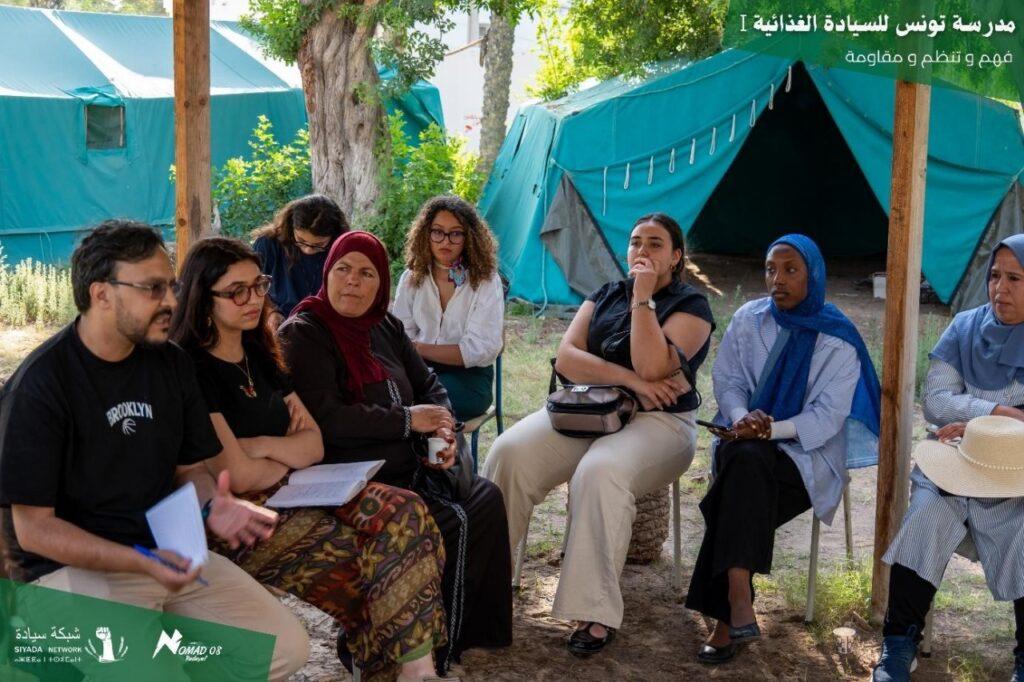
Day two: Peasants, farming and inequality: How is the cycle of poverty created?
The activities of the second day came in the form of two framing interventions aimed at exposing the mechanisms of structural exploitation of peasants and nature, and analyzing who controls the productive cycle, based on specific work axes, namely understanding production relations in Tunisian agriculture by addressing the following concepts: Labor, production tools, production process, ownership, cost, value added, and profit.
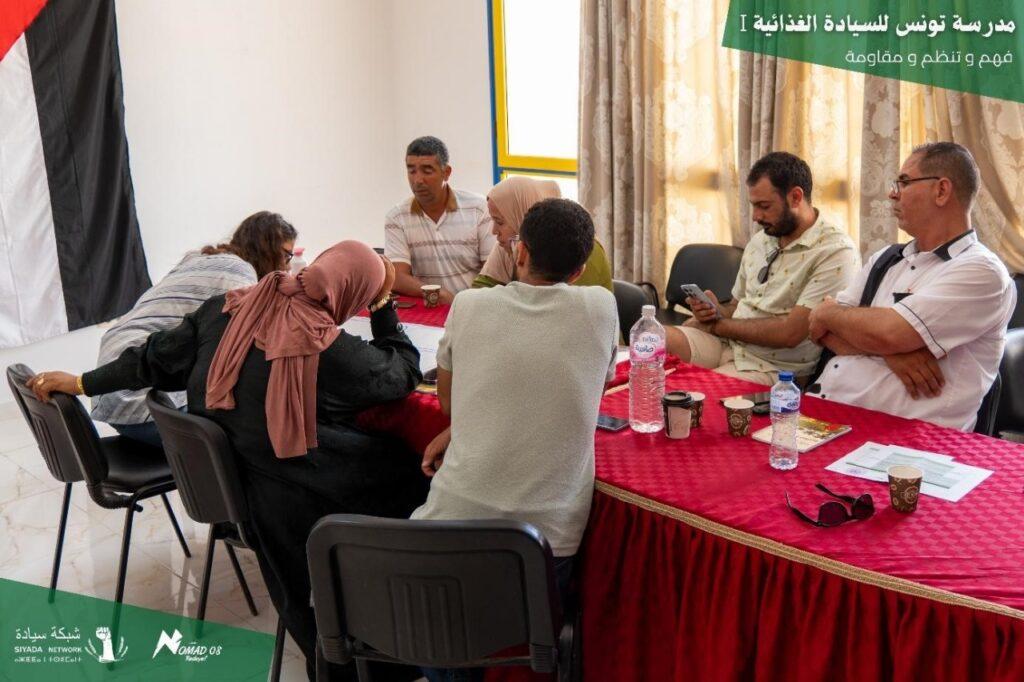
These concepts were an introduction to the four workshops of the same day, where they were discussed at length in order to simplify and explain them to participants, placing them in specific contexts and giving real-life examples, so that they could be absorbed by everyone with the same level of understanding.
We also relied on the abstracts of the workshops, which were diverse in terms of the examples proposed by the participants and presented for discussion, which contributed to understanding and assimilation.
This day’s workshops dealt with the idea of explaining and simplifying aspects of agricultural exploitation through a practical and theoretical comparison between capitalist exploitation, family exploitation, cooperative exploitation, and international exploitation.
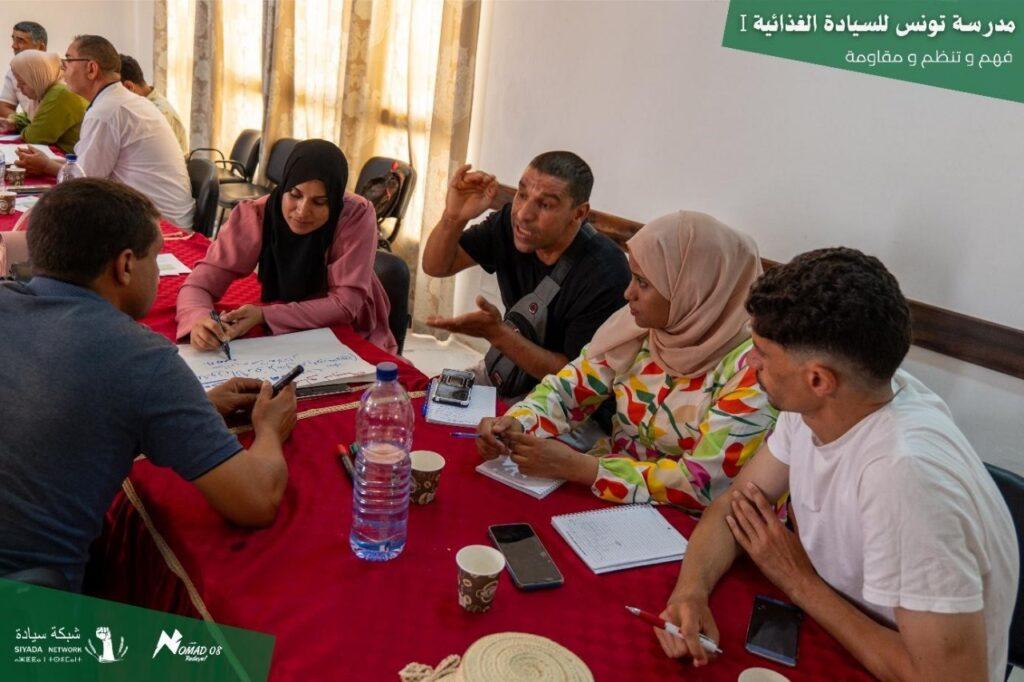
Day three: Field Visit, A Day with Small Farmers
During the school, we programmed a field visit day to Ghannouch and Chenini areas in Gabes; the participants set off collectively on the bus towards the chemical plant in Gabes, which is the most dangerous source of pollution in the region if not in the country, and this plant is known for the continuous protests of the residents of the city of Gabes and its oases over the fumes and toxins (ammonia, phosphogypsum, etc.) it emits into the air and also through its release of toxic substances into the sea, which has become completely polluted and witnesses the continuous death of turtles and fish on its shores and the absence of any form of life in it.
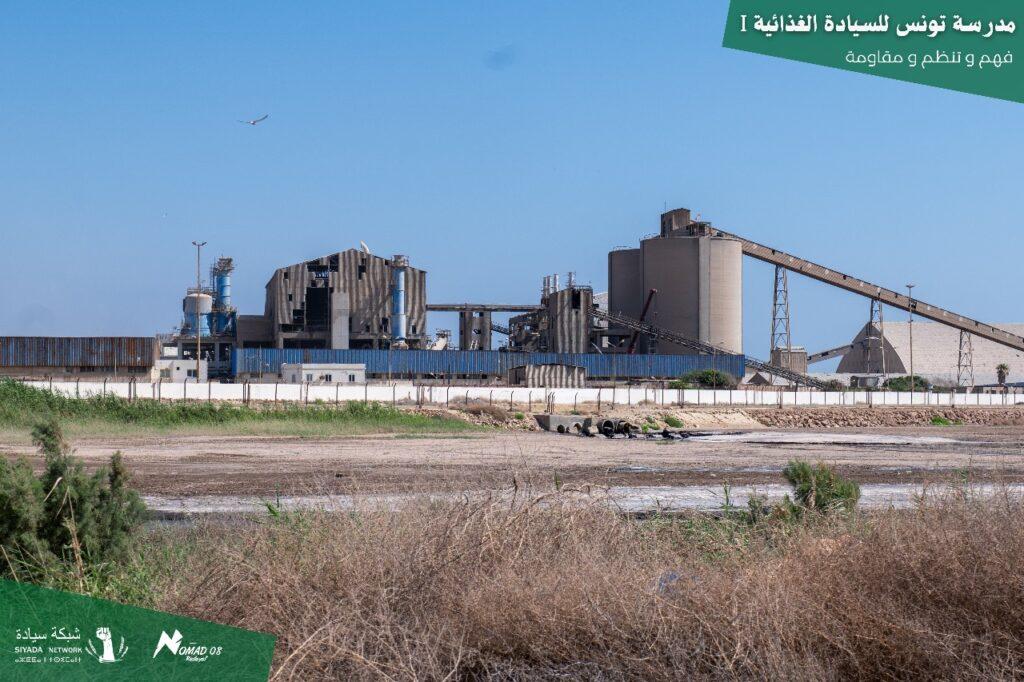
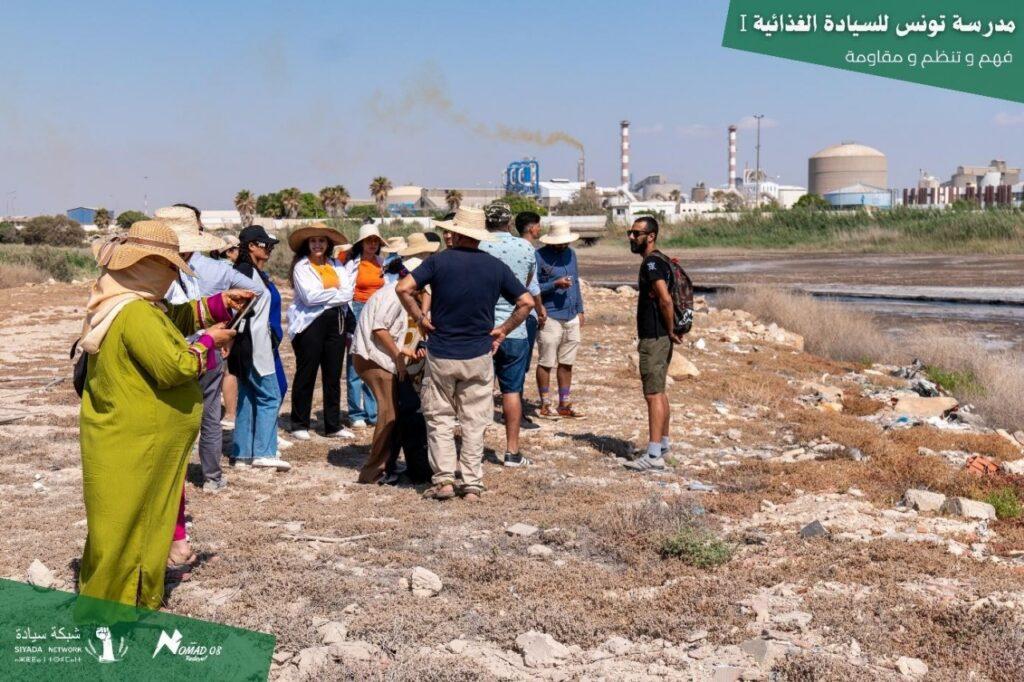
During their stop near the chemical complex in Gabes, participants registered their protest and solidarity with the residents of the city due to this environmental issue that has affected citizens, farmers and small fishermen.
The convoy then moved towards the Ghannouch area, where we were hosted by Uncle Hadi in a sabkha he had rehabilitated over the years. He explained to the participants the extent of the suffering experienced by the peasants of Ghannouch, who restored the land, which was unfit for agriculture due to its high salinity, and started cultivating it with their arms and hard work years ago, and they succeeded in doing so without the help of the state. The issue of land in Ghannouch is one of the biggest issues that threatens the peasants with eviction and homelessness, as they do not own the land and it can be taken away from them at any moment through public force. The main demand of Ghannouch peasants is their right to own the plots of land in the sabkhas, which they have reclaimed with their own hands and which have become their only source of livelihood and existence in Ghannouch. During the day, the painful experiences of small farmers in Gannouch who were expelled from the sabkhas and displaced along with their families were discussed. They also discussed the experiments and techniques adopted by Uncle Hadi and his family to make the land suitable for agricultural production and create healthy products without chemical fertilizers for local markets.
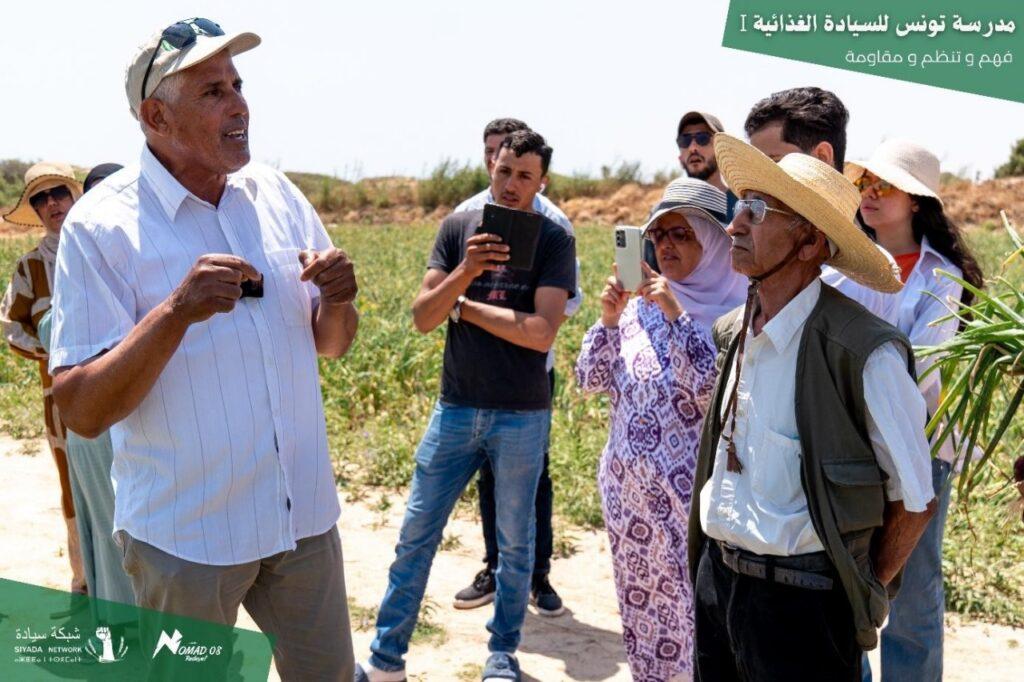
After meeting Uncle Hadi, we went to the “Women of Hope” Complex for Agriculture and Fishing, a unique experience of an organized situation in the region, where the members of the complex explained to us the worsening environmental situation in the area, due to the marine pollution caused by the chemical complex, and how the fish wealth knew a significant decline, which directly affected the small fishermen who lost their sources of livelihood, and their number became fewer as time went on.
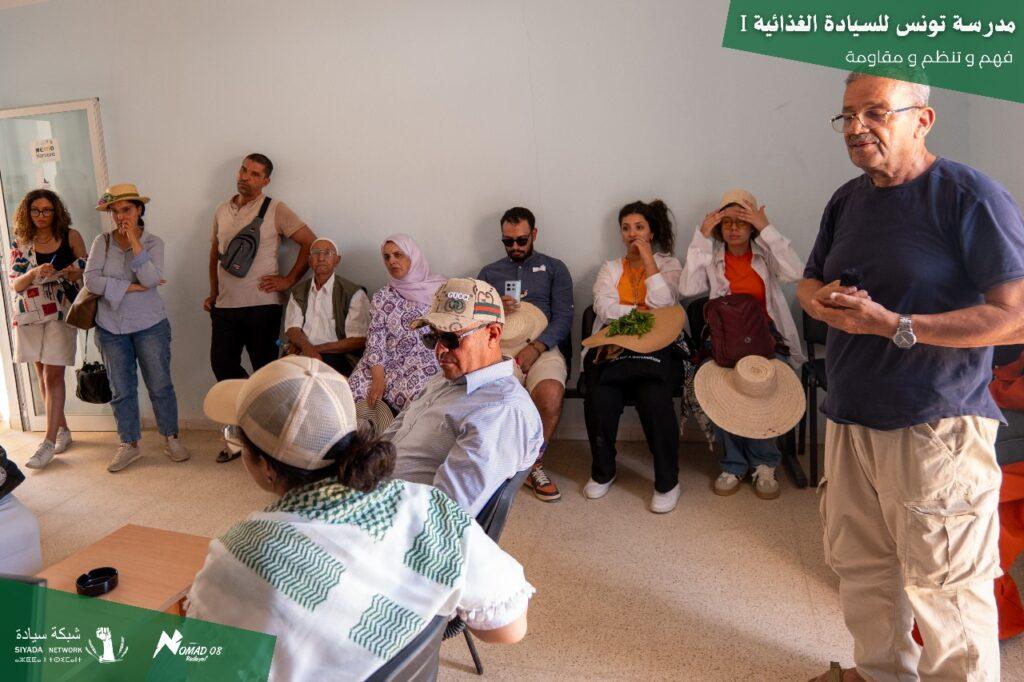
Women from the region have also joined the complex to improve their income by contributing to the production of seafood products, especially the blue crab. Women find it very difficult to access any form of self-organization within collectives or cooperatives in Tunisia. The women of the complex have succeeded in exploiting the abundance of blue crabs in many food products (an invasive species on Tunisian coasts that worries sailors a lot by attacking and cutting fishing nets, locally called “Daech”).
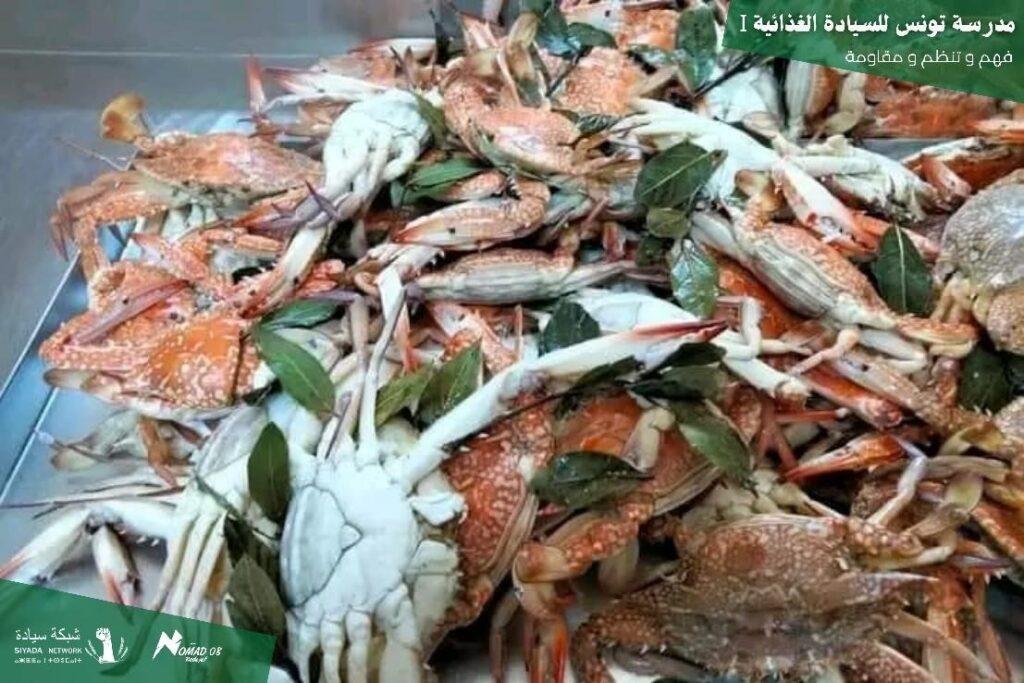
The convoy then moved to the village of Chenini, to visit Uncle Saleh (85 years old), a small farmer who is one of the most important preservers of local indigenous seeds in Tunisia, and whose experience is inspiring for small farmers in Tunisia and the Arab region due to its effectiveness.
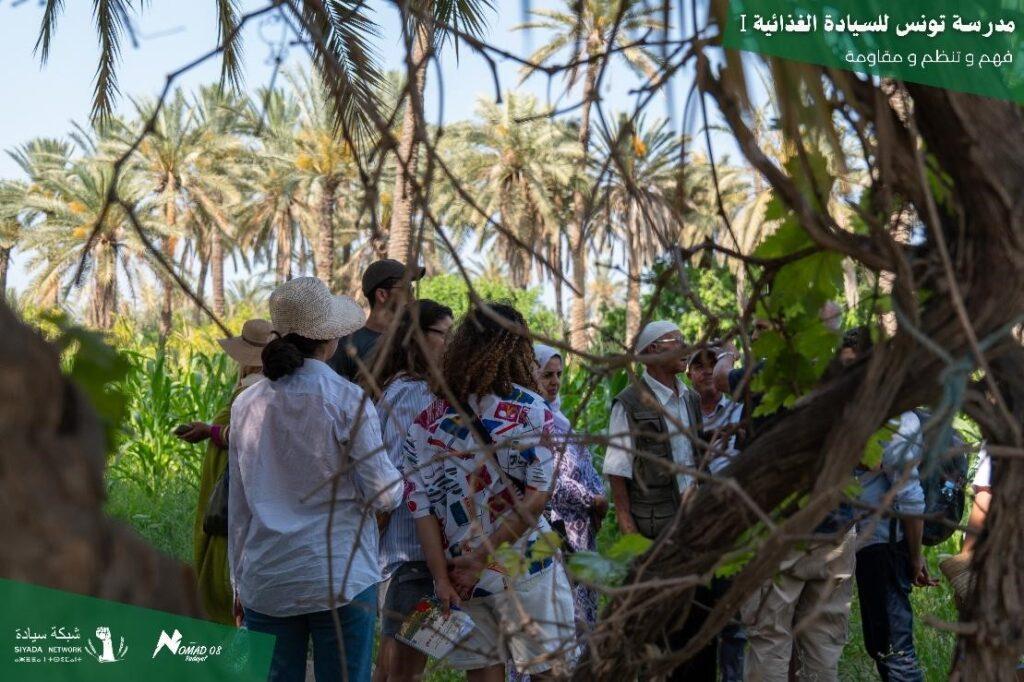
In a small room inside his modest farm, Uncle Saleh stores local types of seeds (squash, carrots, peppers…) He has acquired very rich traditional knowledge to preserve the seeds. He explained to the participants the mechanisms of his work for decades, during which he was able to ensure the hereditary process of these seeds by using natural treatment techniques from insects and decay, such as the use of tobacco leaves.
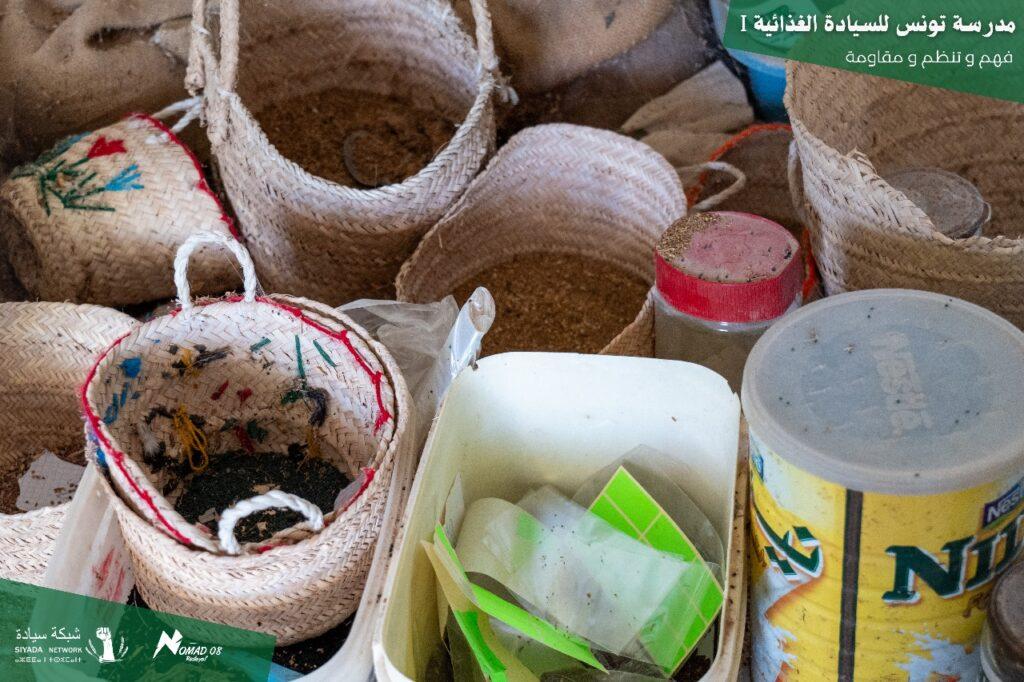
Uncle Saleh has spent his life in ecological farming, preserving indigenous knowledge to ensure food sovereignty in his region, and participates in various events organized by organizations defending food sovereignty.
In the evening, we organized a group screening of the film “I am a rapist”, directed by Wafa Kharfia, and the audience discussed this artistic work, which touches on the most important issue of food sovereignty, namely land ownership and the denial of land to women farmers.
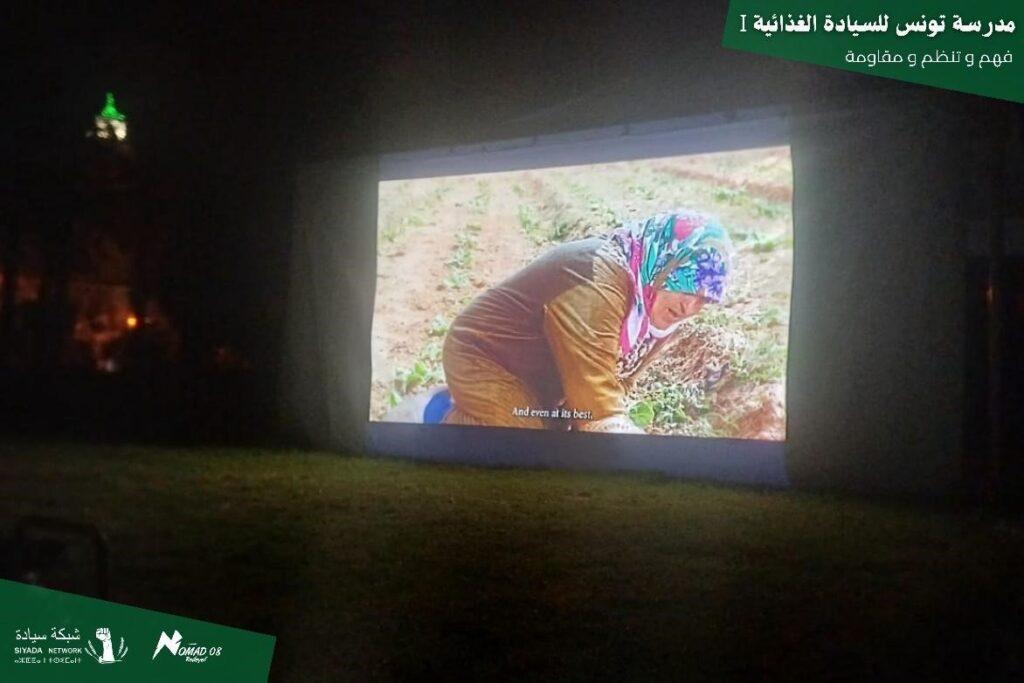
Day four : The United Nations Declaration of the Rights of Peasants
During the first half of the day, a presentation was made on introducing the United Nations Declaration of the Rights of Peasants and Rural Workers, which is an international recognition of the rights of peasants as it includes basic rights such as the right to land, seeds, the right to food sovereignty, etc: We also discussed the importance of this declaration as it was written by the hands of male and female peasants and is based on their reality and experience spanning generations, in addition to the declaration being a mechanism that can protect peasants through litigation in the courts and popular awareness and education of peasants’ rights.
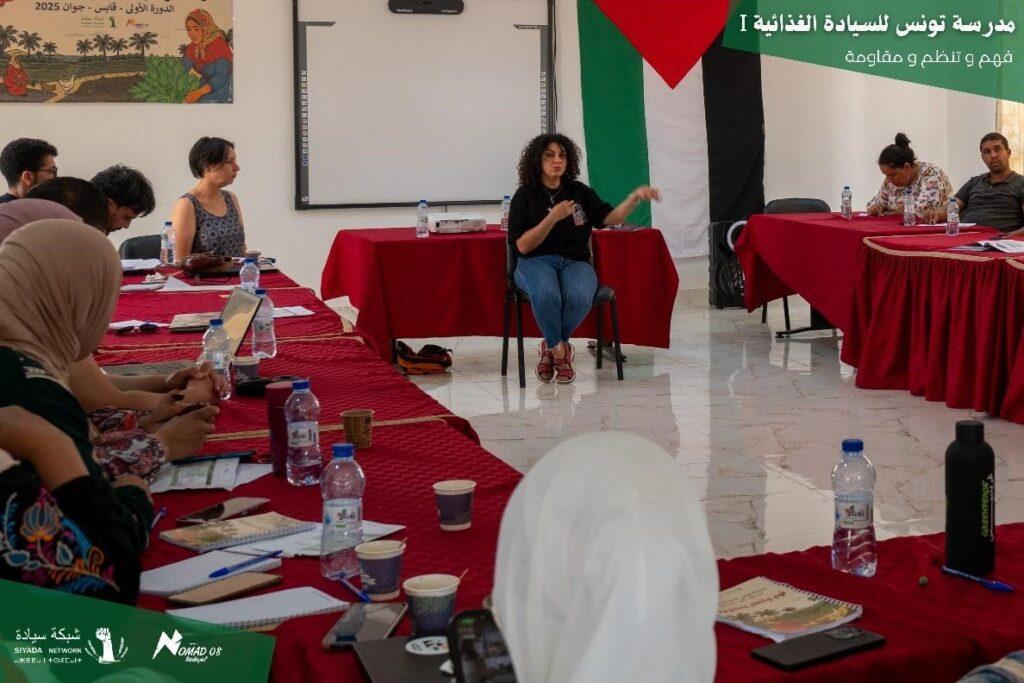
Introducing the United Nations Declaration on the Rights of Peasants was an important aspect, through which researchers, journalists and human rights defenders were urged to use it to defend the rights of peasants, and most importantly, it was explained that the Declaration is a suitable platform for mobilizing the forces of struggle to build a popular balance of power to seize gains for the sovereignty of people over food.
